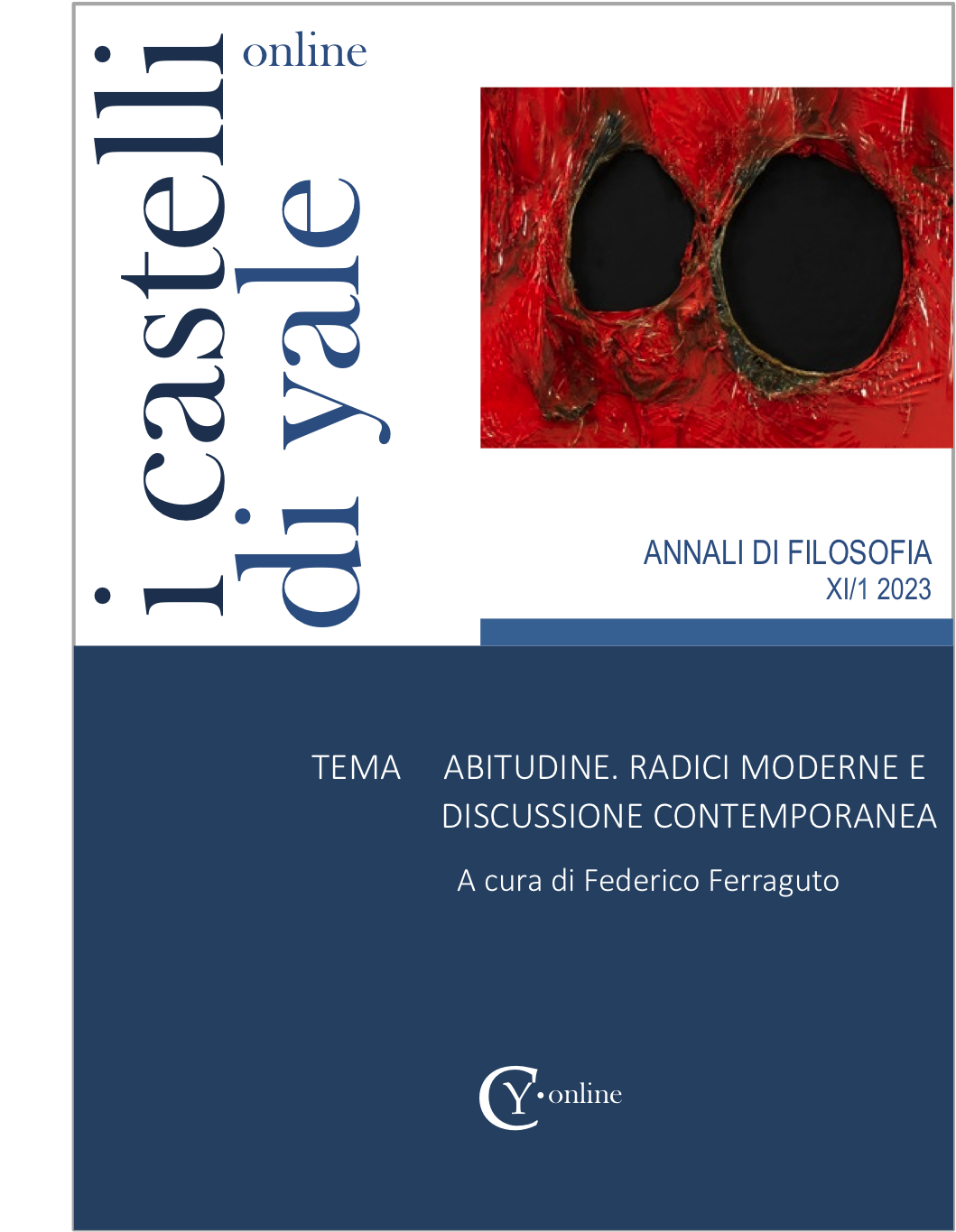Habituation to autonomy.
Habit in the Transcendentalism of Husserl and Fichte
DOI:
https://doi.org/10.15160/2282-5460/2713Keywords:
Habits, Phenomenology, Fichte, HabilityAbstract
The paper reconstructs the relationship between habit, ability, environment and opportunity in order to consider habit not only as the result of a mechanical repetition of gestures, but as creative and intelligent acting (§2). The paper shows how in Husserlian phenomenology habit can be understood as the basis for this intelligent acting to take place as the formation of general sense structures and how this formation implies a regressive genesis of freedom that is exercised as a function of habits (§ 3). Finally, taking Fichte’s perspective, he clarifies how in his Wissenschaftslehre, this genesis develops in a progressive sense, clearly highlighting the emancipatory potential of habit (§ 4).


